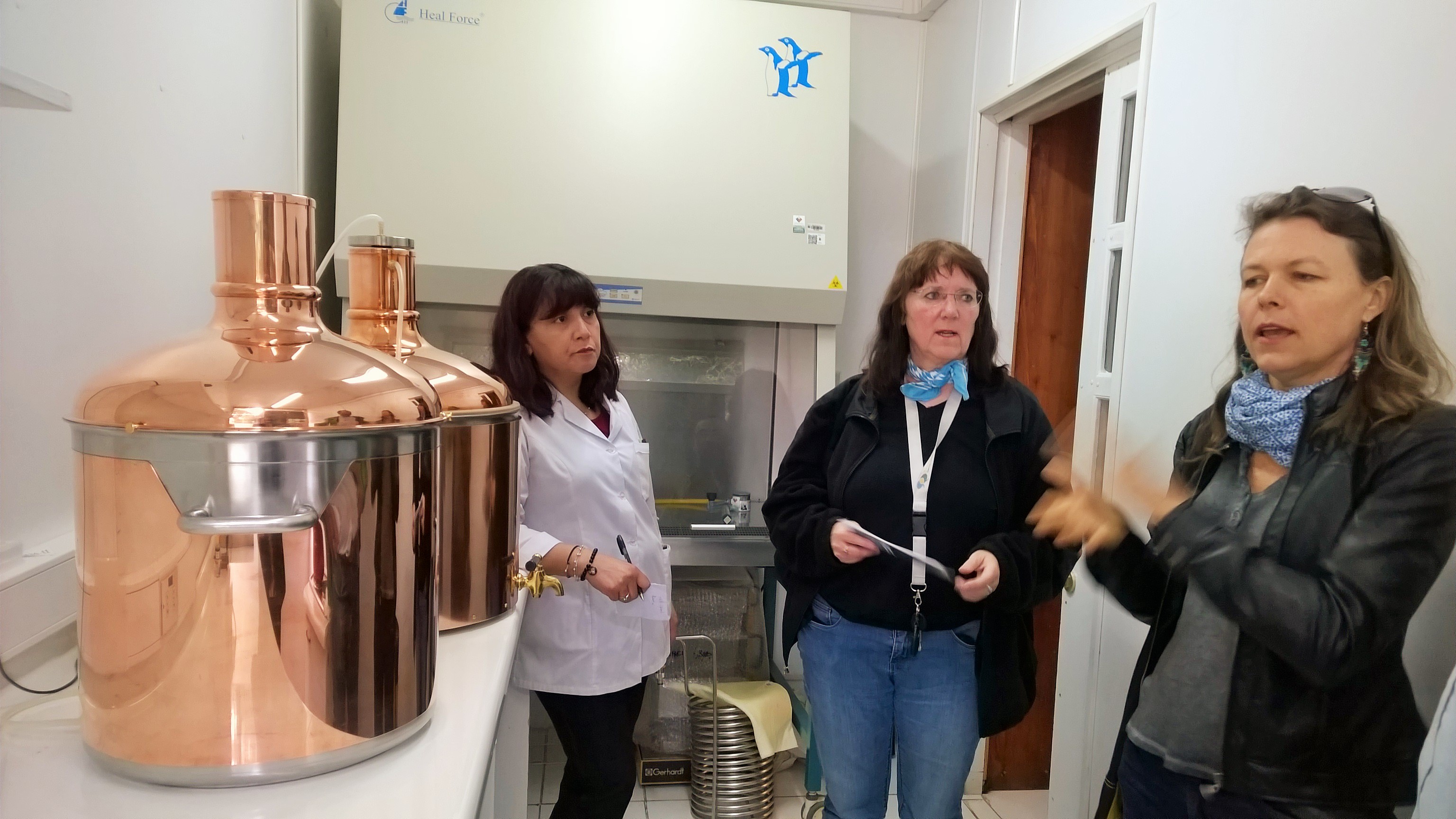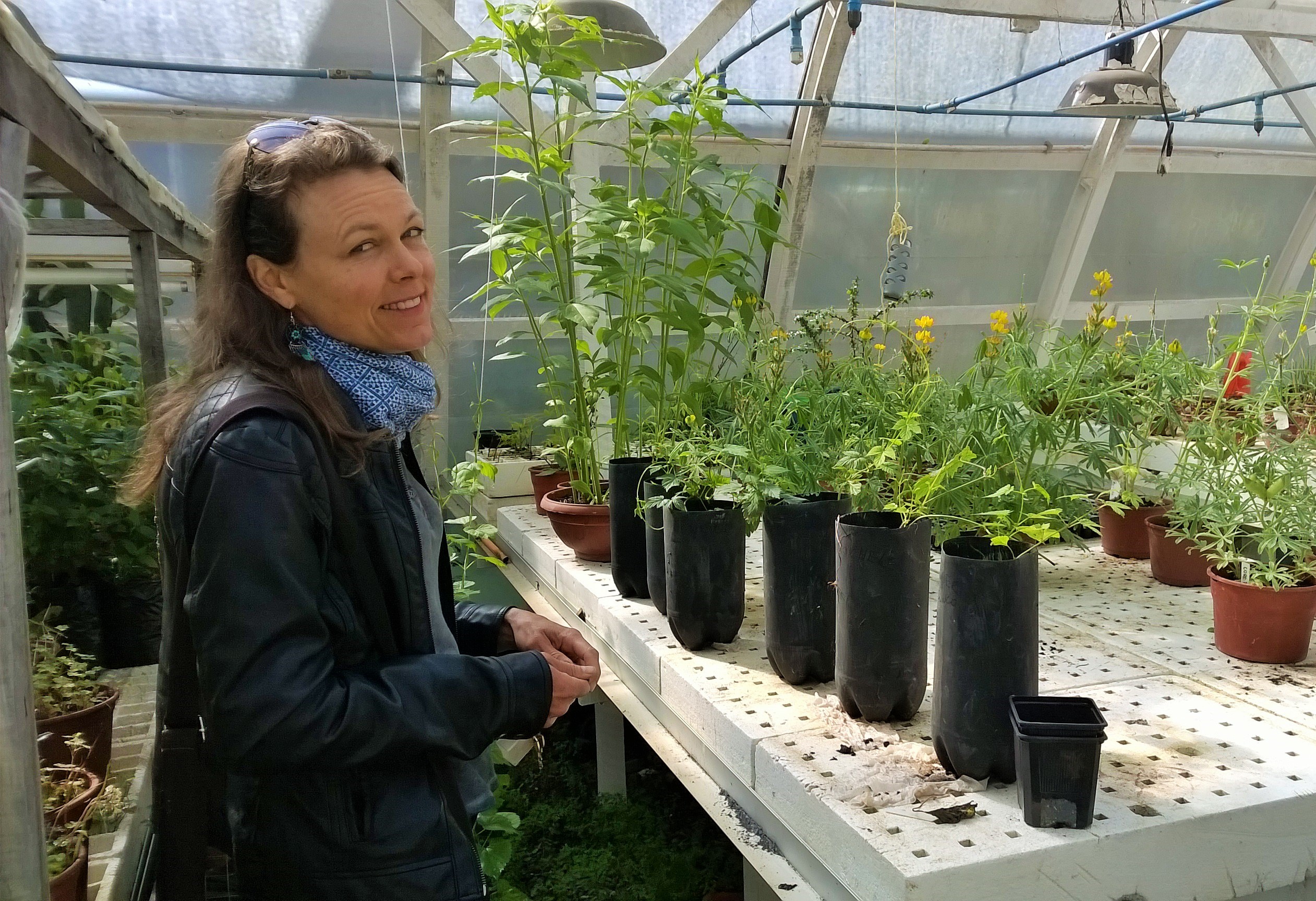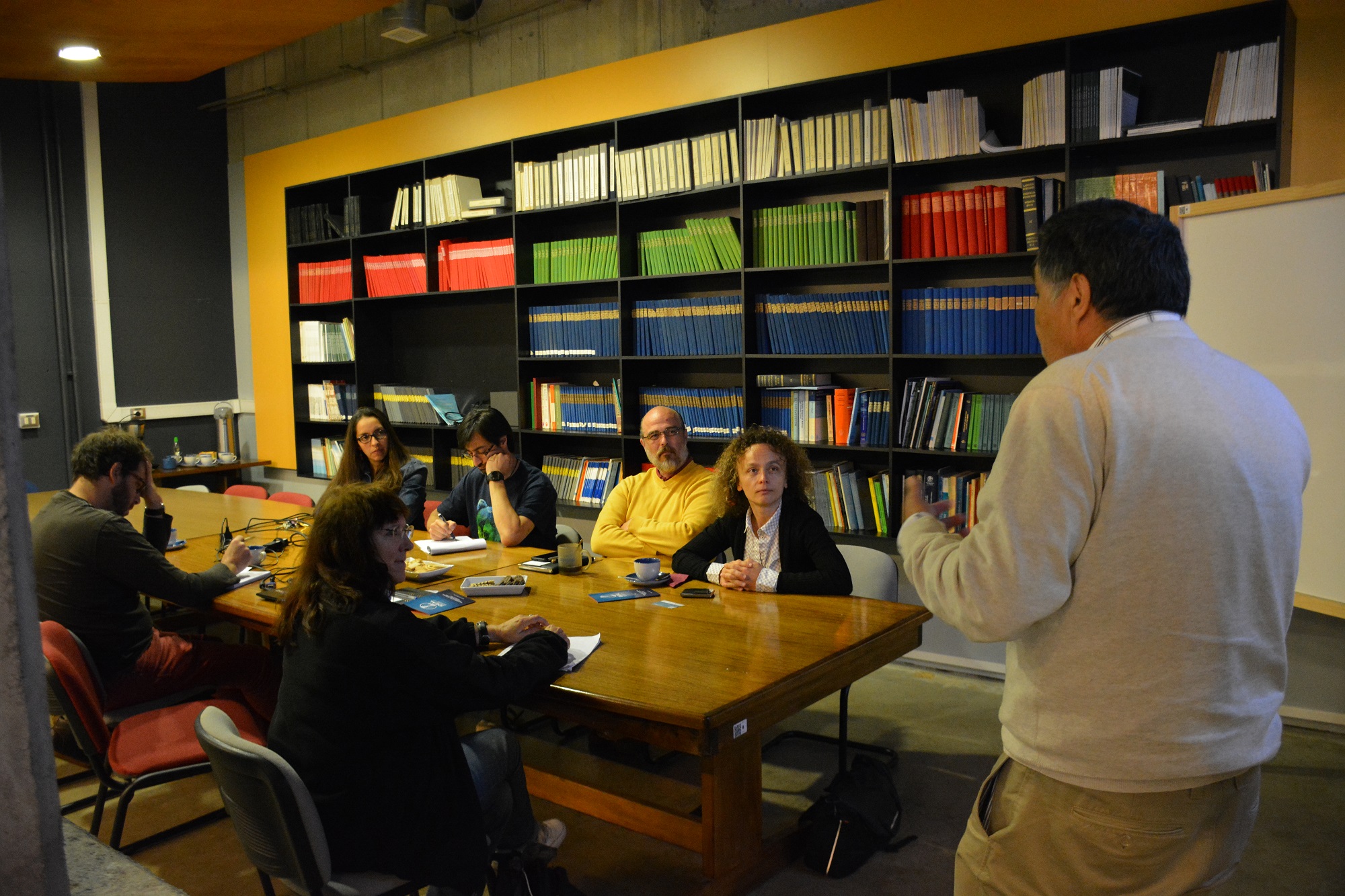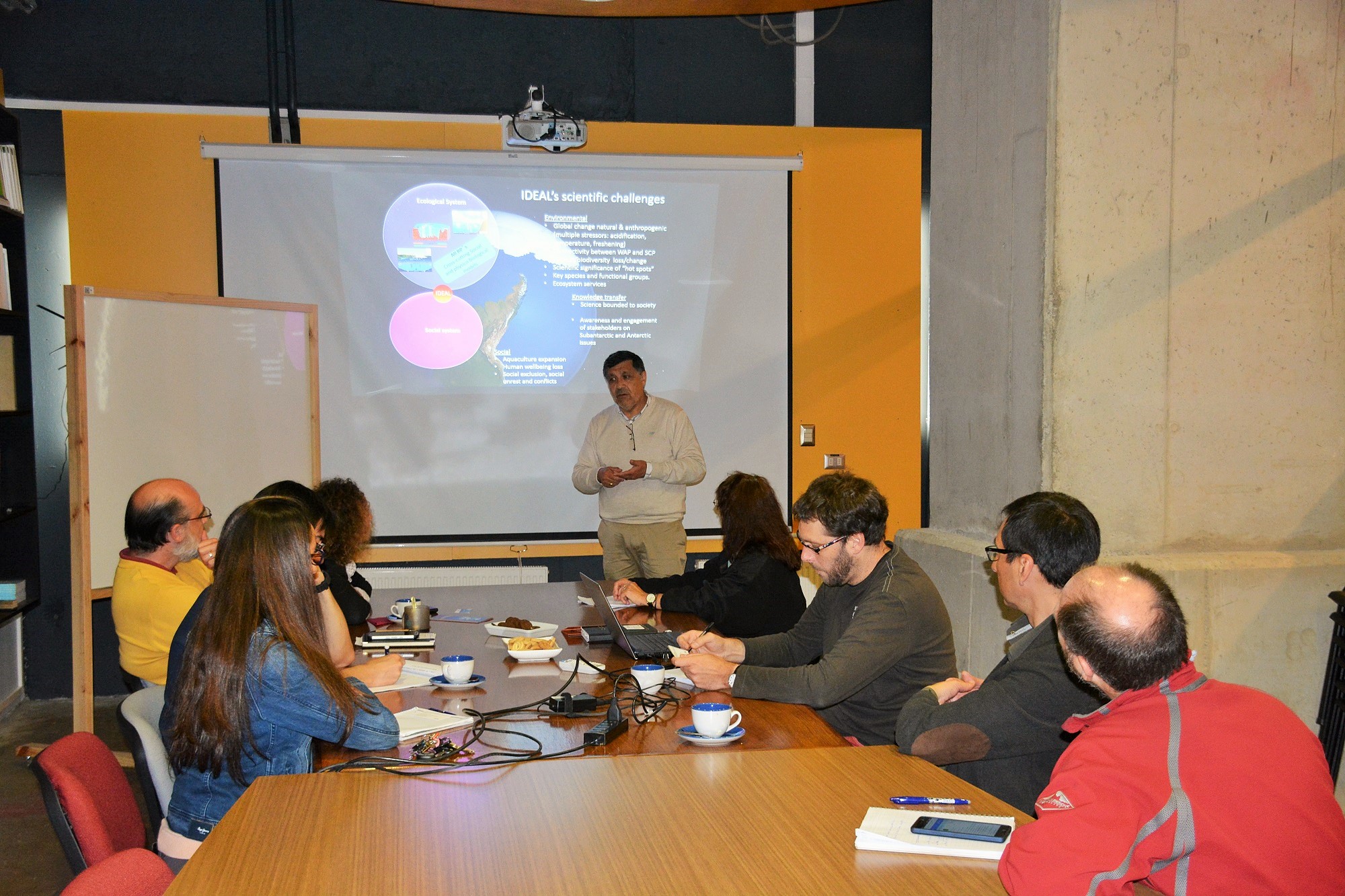Visit to Universidad Austral – German Roots in Chile
(20.02.18) A new year means new goals and possibilities for cooperation. At the beginning of January, the Director of the DFG Office Latin America, Dr. Kathrin Winkler, paid a first visit to Universidad Austral de Chile (UACh) – a university that maintains strong links with Germany. Prof. Gudrun Kausel, who has served as a DFG Liaison Scientist in Chile since 2006, is a lecturer and researcher in the university’s Faculty of Sciences. During her trip, Winkler visited the institution in the Los Ríos region and met with university representatives and research staff.
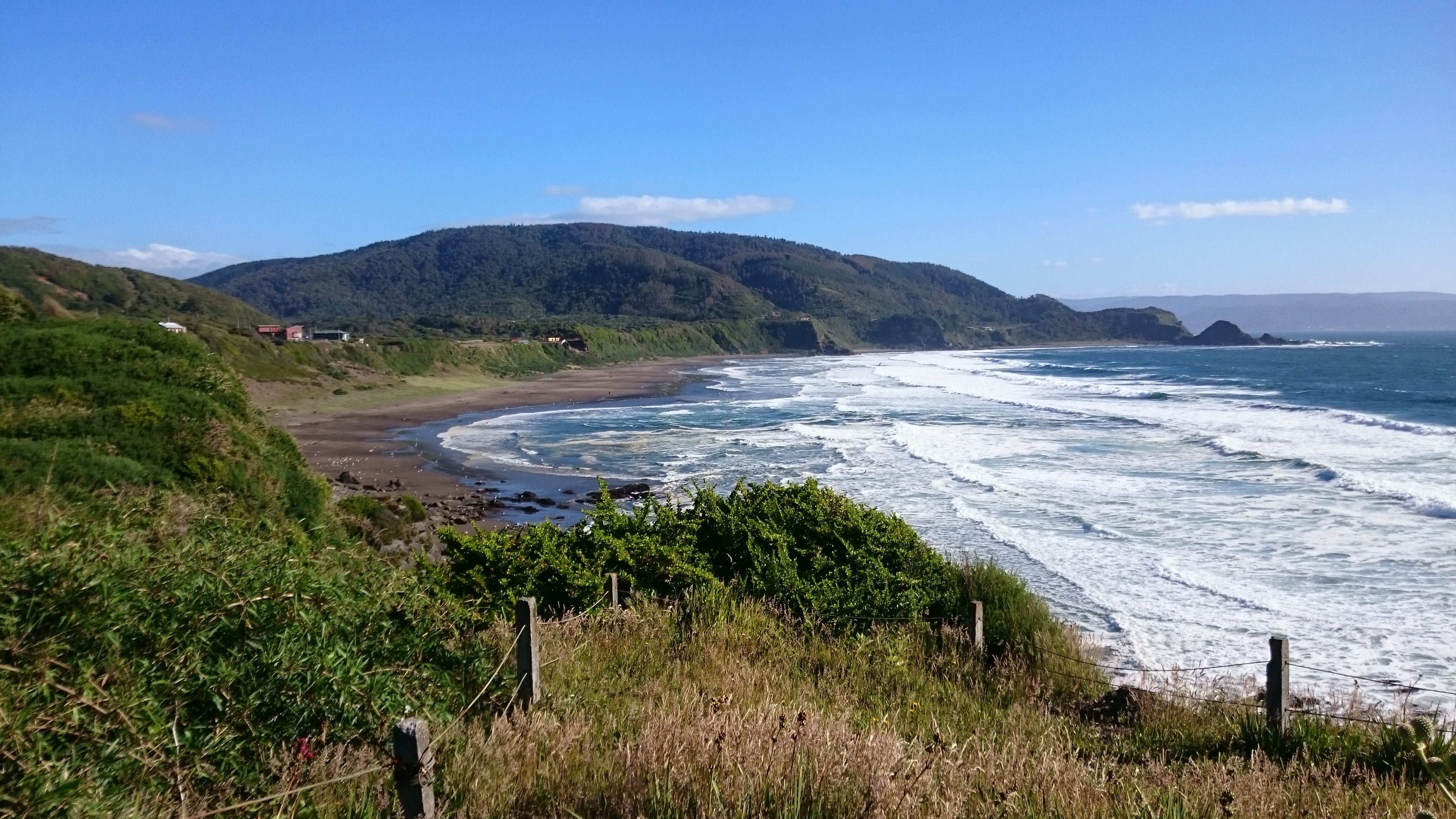
View of the Pacific in the Los Ríos region – UACh building near Valdivia
© DFG
“I’ve wanted to make this trip for a long time to learn more about the cooperation with Universidad Austral for myself. The fact that the university also has German roots makes it a very important partner for us. I was impressed by the fact that most of the researchers I met speak German,” she said.
German heritage
The university was founded in 1954 in response to the need for a place of higher education in southern Chile. The chosen location was Isla Teja, an island belonging to the city of Valdivia between the Calle-Calle River and the Cruces River. Just over a century before the establishment of UACh, the region began to be settled by German immigrants. From 1850, it was the main destination of German immigrants in Chile.
As Prof. Kausel explained, the links with Germany came about with the establishment of the university, when the teaching staff were trained in Germany. Today, UACh ranks among Chile’s top five universities and has cooperation agreements with 26 German institutions. It is also one of the few universities in the country to offer a joint PhD programme.
The German influence is still noticeable today – not only in connection with the university itself, but also in its relations with the local community. One example of this is a research project coordinated by Prof. Kausel and her colleague Dr. Anita Behn from the Faculty of Agricultural Sciences, which is designed to provide impetus for the region’s craft beer industry. Unsurprisingly, Chile’s first brewery was founded in 1851 in Valdivia by a German, Carl Anwandter. Behn recounts how the hops needed to make the beer were brought over by immigrants from Germany, who planted it in their gardens to remind them of home.
The experimental brewery at UACh
© DFG
In Valdivia – now known as Chile’s beer capital – you can still find hops of German origin today. So far, scientists have identified around 20 different varieties that have survived there to the present day. However, research has shown that they differ not only from the German varieties of around 200 years ago, but also from the types commonly found in Germany and North America today. One possible explanation for this could be that climate and soil conditions, plus the coexistence of other regional plant species, have given rise to microevolution of the original hop varieties.
On the university campus, Winkler visited a greenhouse containing specimens of hops from Valdivia and an experimental brewery for research use. The aim is to investigate how the specific characteristics of the regional biome have contributed to the development of these varieties and to analyse their effect on the aroma and flavour of the beers produced in the many local breweries. For this project, the researchers are collaborating with specialists from the School of Life Sciences Weihenstephan at TUM, where Behn obtained her doctorate. The results of the research are also helping members of the brewers’ association Unión Cerveceros de Los Ríos to further develop and optimise their products.
Humberto González presents the IDEAL project to Kathrin Winkler
© UACh-IDEAL
IDEAL
Another interesting example of cooperation with Germany is the UACh Research Center Dynamics of High Latitude Marine Ecosystems (Centro de Investigación Dinámica de Ecosistemas Marinos de Altas Latitudes – IDEAL). Together with the Alfred Wegener Institute (Helmholtz Centre for Polar and Marine Research) in Bremerhaven, scientists here conduct interdisciplinary research in marine science and ecology with the aim of understanding and measuring the impacts of global change on ecosystems in the Antarctic and Subantarctic regions. They also aim to better understand the possible consequences for local communities.
The initiative is being funded as part of a programme to promote priority areas operated by CONICYT, the DFG’s partner organisation in Chile. In Valdivia, Winkler also met with the local project leader, Prof. Humberto Gonzalez, who earned his doctorate and did postdoctoral research at the University of Bremen. It was during his time there that he took part in expeditions to the Arctic and Antarctic.
Prof. Gonzalez stressed the fundamental importance of international cooperation for the activities pursued by IDEAL. The research centre also collaborates with other institutions in Germany and other countries, such as Argentina, where the Ministry of Science, Technology and Productive Innovation (MINCYT) – another DFG partner organisation – is supporting a major marine science project known as Pampa Azul. It was suggested that scientific workshops could be held in this area in which researchers from Germany and Chile could be joined by colleagues from Argentina. Workshops could be funded by the DFG, CONICYT and MINCYT. Events of this kind also provide a starting point for jointly coordinated projects involving researchers from the three countries.
During her visit to UACh, Winkler also met with the Director of International Relations, Dr. Maite Castro, and research staff from a wide range of departments who maintain ongoing partnerships with Germany. She took this opportunity to present the DFG and its activities in Latin America and to explain the funding lines available for German-Chilean cooperation. Her trip to Chile also gave her an ideal opportunity to reinforce relations with partners in the country established by Prof. Kausel’s efforts. “We want to continue supporting the initiation of new, large-scale projects in partnership with Germany,” the DFG Liaison Scientist said.
